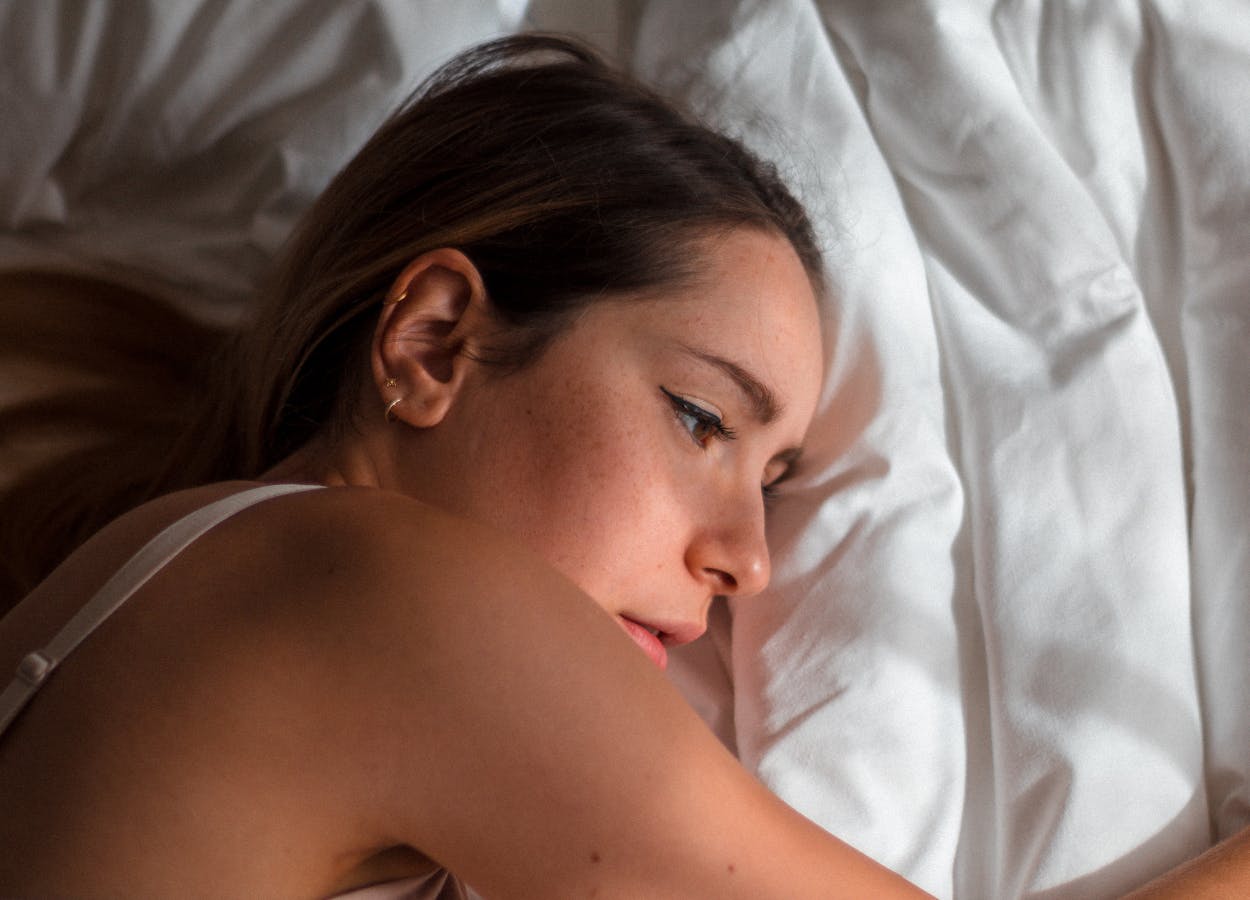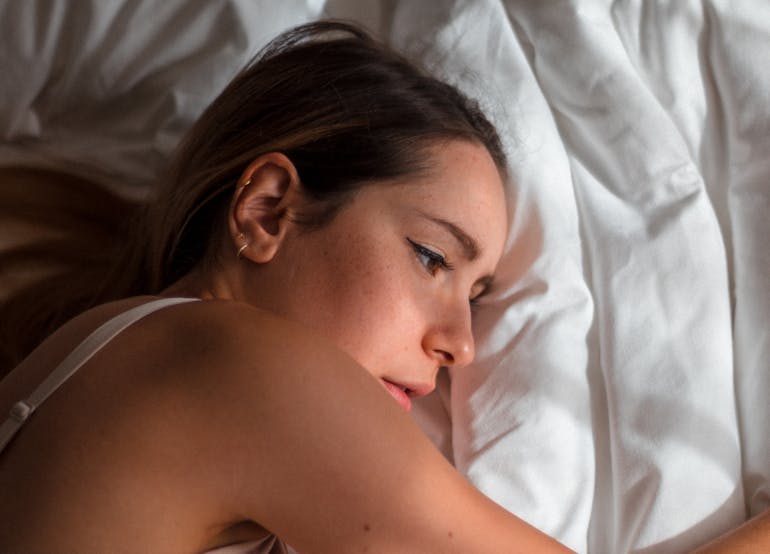Our pharmacist answers: ‘Why is my hay fever worse at night?’
Reviewed and fact-checked by Giulia Guerrini, Superintendent Pharmacist. Read our editorial policy to see how we create informative, accurate content.
You’d expect the worst of hay fever to rear its annoying head during the day when you’re outside. But if you suffer from the dreaded seasonal sneezing, runny nose, itchy eyes or nasal congestion, you’ll know these symptoms can strike at night – just when you want to put your head down for some much needed shut eye. So, if you’re wondering, "Why is hay fever worse at night?" – we’ve got the answers... and what you can do to help relieve the symptoms.

Why is hay fever worse at night?
Pollen levels are highest during the day, right? Not necessarily. That’s just one of the reasons why you might get hay fever at night. Hay fever at night could also be caused by pollen getting trapped inside during the day, or it might even be down to the food you eat or the position you sleep in (really). That's right – while you're hoping hay fever takes a day off, it turns out it doesn't even take a night off sometimes.
Don’t worry, there’s help at hand. But before we get into that, here’s a little more about the 3 main causes of hay fever at night.
1. Pollen levels
Pollen levels can be really high at night. The pollen rises with warm air during the day and falls back down when the air cools down. Some trees and plants also release their pollen in the evening, which is why you might be sneezing at night and suffering from nasal congestion.
Pollen can also get trapped inside your home. The pollen count doesn’t even need to be high for this to happen. But how does it get inside? Well, you might be bringing it in. Pollen can easily get stuck to your clothes, skin, hair and also on pets that spend time outside (but we forgive them).
2. Food and drink
We hate being the bearers of bad news, but chocolate can make your hay fever symptoms worse. It contains a chemical called histamine, which is the same one that your body produces when it reacts to pollen. A scoop of ice cream after dinner, instead? Um… you might want to skip this, too. Dairy can make your mucous thicker, which can lead to even more uncomfortable nasal congestion and might also make your runny nose more noticeable.
Your favourite G&T on a night out might also be affecting your hay fever symptoms. Just like chocolate, alcohol contains histamines, which could also counteract any allergy over the counter medications you might be taking. Sweetened fizzy drinks could also be culprits, too (sorry). They act against the chemical your body produces to suppress histamine – the allergy causing chemical.
3. The way you sleep
If your usual symptoms include nasal congestion, you might find this gets worse when you get into bed. That’s because when you lie flat, your sinuses don’t drain as well as they usually do. Adding an extra pillow might help – try it!
Related: UK Pollen Calendar for Hayfever
How to help hay fever at night
Even though there are a few things that can make your hay fever worse at night, we’re here to help so you can start snoozing. There are a few things for you to try that can help to relieve symptoms, like over the counter medications – but first, you’ll need to find out what’s causing your symptoms. Whether that’s pollen trapped in your home, a high pollen count or maybe something you’re eating and drinking – here’s our run down of remedies.
- Keep nasal sprays and eye drops to hand
Brilliant to keep in your bag or pocket when you’re out and about and also on the bedside table. Nasal sprays, like Otrivine Congestion Relief Nasal Spray can help with nasal congestion throughout the day. It gets to work in minutes and can last up to 10 hours. If you find that you get red, watery and itchy eyes, try Numark Hayfever Relief Allergy Eye Drops. They work quickly to give you relief – perfect for a more restful night’s sleep.
- Dip into coconut oil
This one might be a bit surprising (but also quite delicious). A little coconut oil around your nostrils will trap pollen before you breathe it in. Genius, we know! Try Kiki Health Organic Coconut Oil, but remember to reapply it after you blow your nose.
- Try taking antihistamines
Antihistamine tablets are great to prevent and treat symptoms, even if you get hay fever at night. An antihistamine like Clarityn Allergy Tablets is non-drowsy and you only need to take one a day. They give you relief from sneezing, runny nose and itchy eyes.
- Keep pollen outside
Even though pollen has a sneaky way of creeping into your home, you can still take precautions. Try to keep windows closed as much as possible, especially in your bedroom where hay fever could cause sleep problems. Take a shower when you get home to wash off any pollen on your skin and hair and try not to undress in your bedroom where pollen can fall off your clothing.
- Keep track of what you eat and drink
Like we said, sadly there are some foods and drinks that can cause your hay fever to get worse. Try not to eat too much chocolate, dairy, nuts and refined sugar. It’s no fun, we know, but you should try to reduce the amount of alcohol, caffeine and fizzy drinks you have in the evening, too.
What’s the difference between allergic rhinitis and hay fever?
Allergic rhinitis describes the reaction your body has to certain allergens like pollen, dust mites, pet dander, dust or mould. Hay fever is a form of allergic rhinitis where you’re allergic to pollen. Symptoms of other kinds of allergic rhinitis are the same as hay fever. Finding out what type of allergy you have will help you to manage it and treat the symptoms or remove the causes.
Now that we’ve given you the low down of hay fever at night, you can stock up on hayfever and allergy remedies to help you through the season. Order today, and we’ll get everything delivered tomorrow.


